Frontlines: Fuel Of War is a 2008 game that combines the premise of Battlefield gameplay with the then futuristic aesthetic games like Ghost Recon Advanced Warfighter. I played through its entire campaign, on normal difficulty to see if it was worth revisiting.
Right off the bat the game began with a cutscene inside of a military helicopter where Great Value Marcus Phoenix sparred wits against the writer’s self insert.
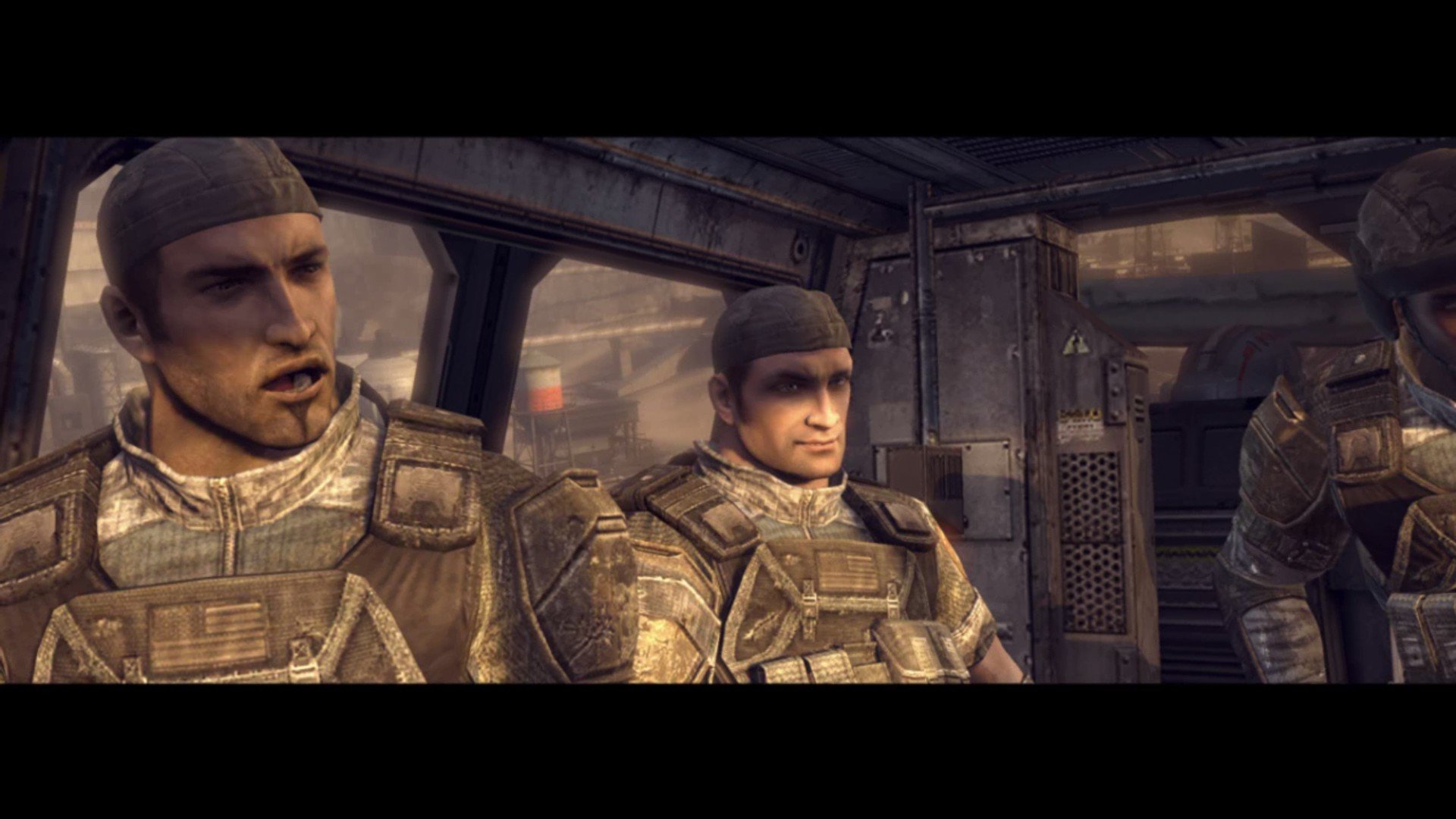
Because this was a military shooter made in the early 2000s, the helicopter carrying everyone was almost immediately shot down. World War 3 between the US and The Red Star Collation, a Russian and Chinese combined force, had begun.

After that cutscene I was thrown straight into gameplay. The shooting immediately felt familiar to games of its age, with stiff shooting guns that felt underanimated and given underpowered audio. The visual design oozed 2008. The main gun of the campaign is some kind of XM8 mutant offspring with an OICW launcher stuffed inside of it. If you know what those words mean and were gaming in 2008, you know the vibe just from that.
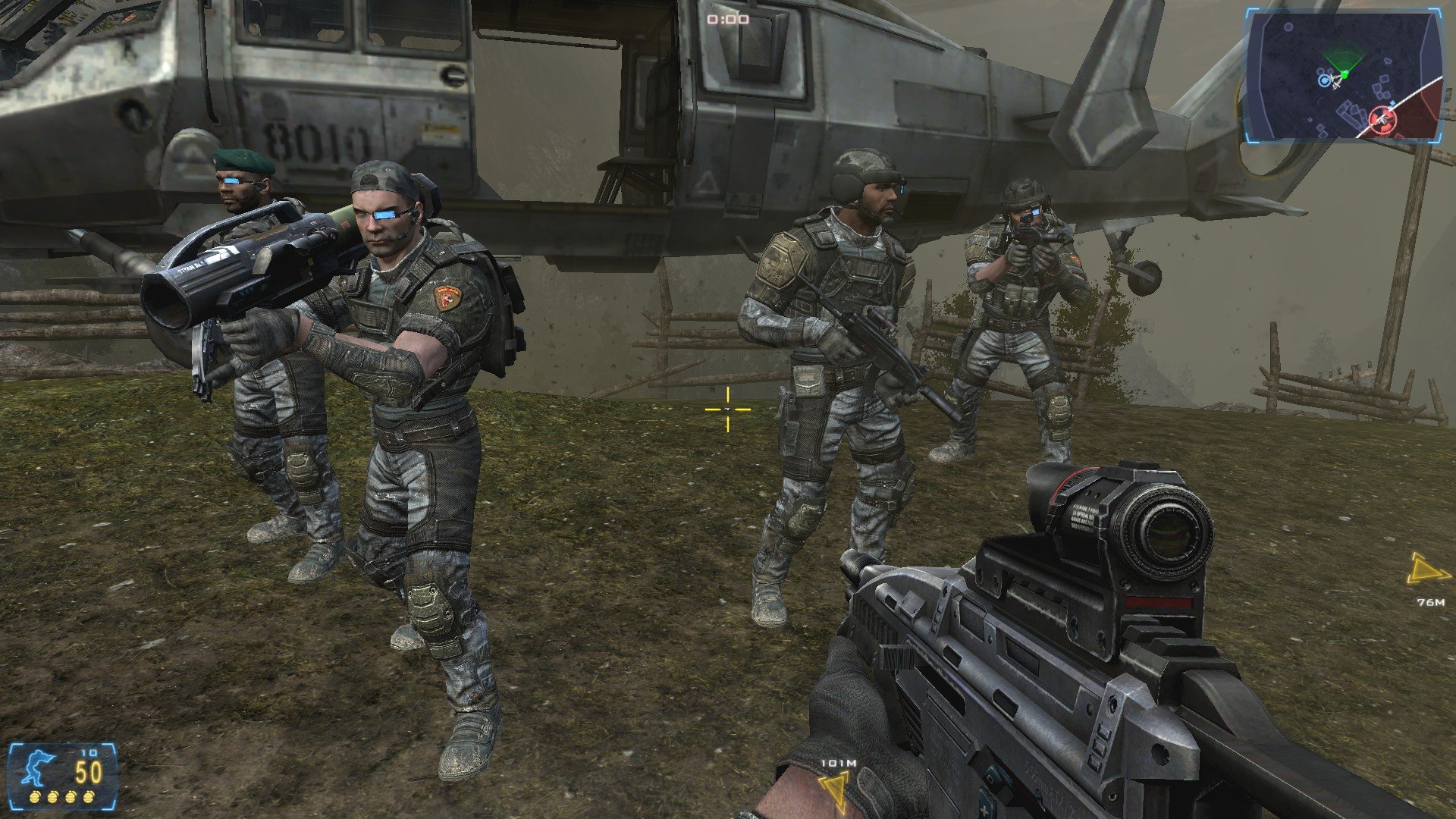
I sprinted forward into this brown military soup and quickly picked up what was being asked of me. There were always points that needed to be captured, and to capture them I was provided with an array of tools from assault rifles, to drones, to airstrikes, to tanks, to cybertrucks.
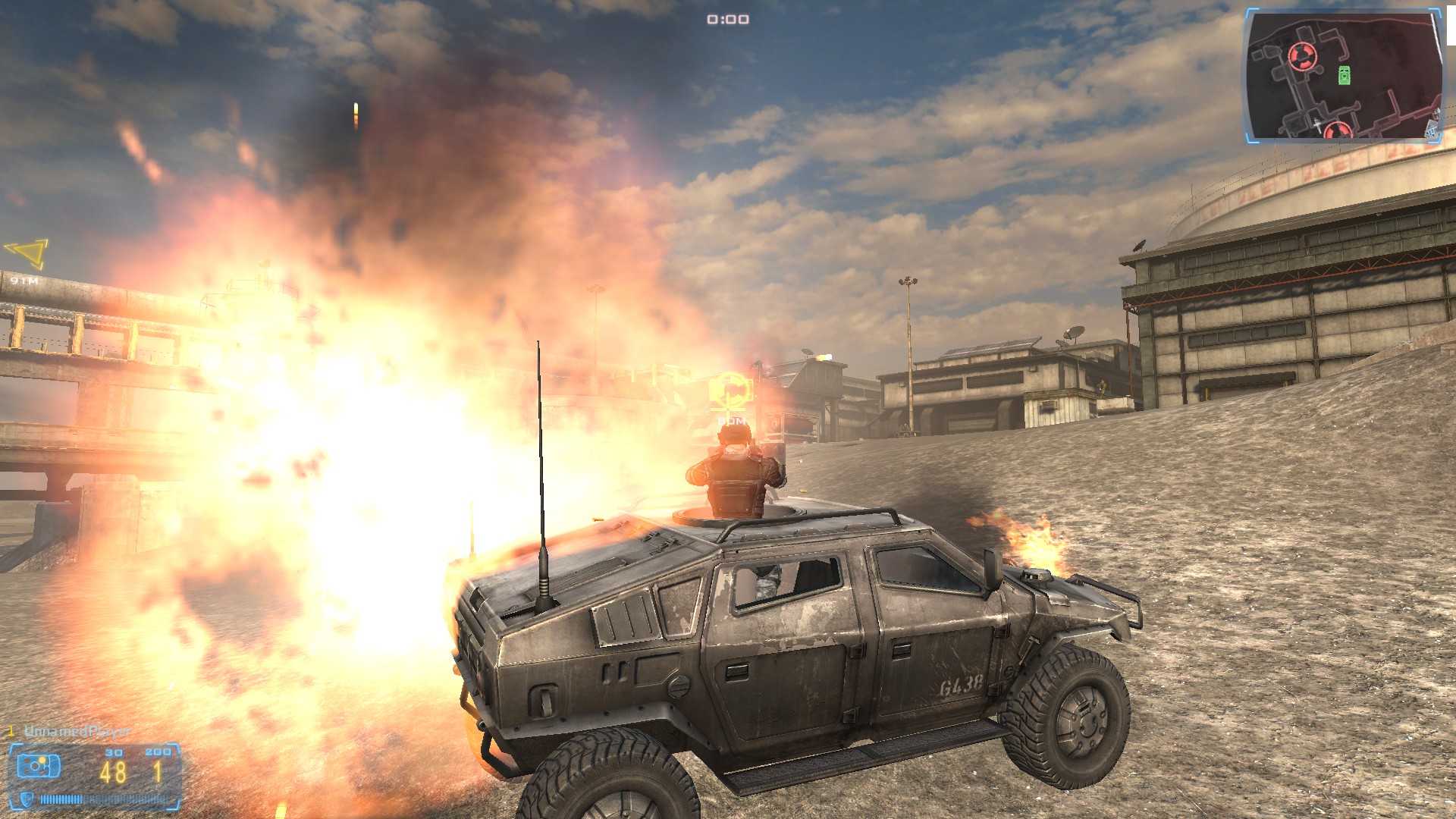
The plot of the game progressed as the Red Star Collation, mostly seen in game as the Russians lost ground. The plot was witnessed through the eyes of Marcus Phoenix’s protege, who I call Dudebro because I don’t even know if he was ever named, and Author Self Insert. While the tone lacked rah rah USA patriotism, it had a seemingly blaise approach to major horrors written into the conflict. At one point the Russians launched nuclear missiles, with the characters treating it with as much gravitas as watching a potato explode in a microwave.
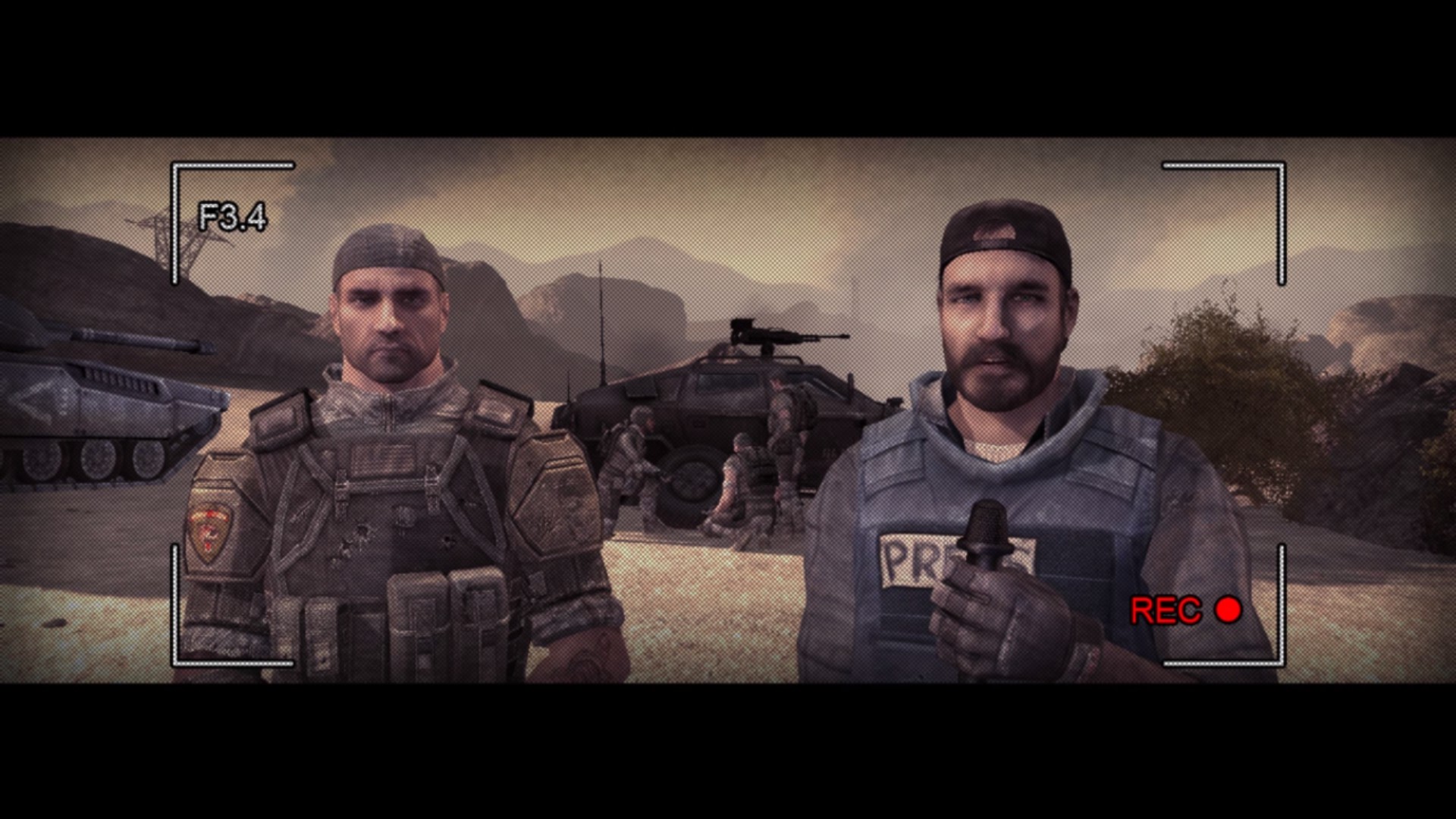
Eventually the campaign brought me to the finale as the US forces assaulted downtown Moscow. Towards the end there were numerous buildings meant to be captured, and I was allowed to tackle them in any order, with the chaos of my AI comrades following me wherever I went. Truly the finale levels did feel like true battles with impressive, or at least deceptively feeling, numbers of troops and vehicles involved.
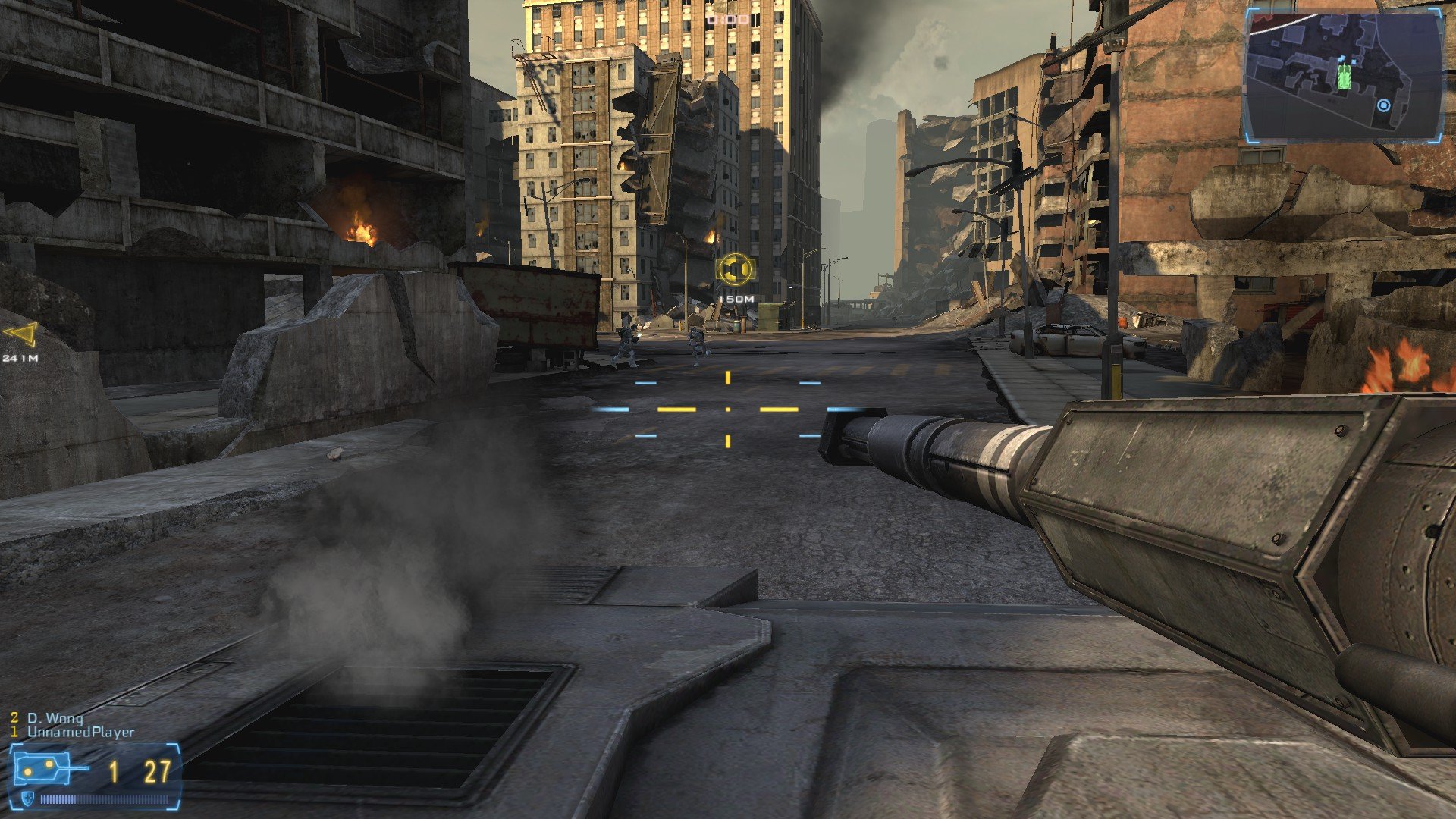
As I assaulted the final building in Moscow I think something in my game bugged out, as the flurry of soldiers who had been accompanying me to all the other objectives in the city seemingly failed to spawn inside with me. At first I was too busy shooting to notice, but as hallways fell quiet and I moved past the hoards of gunned down Russian conscripts I began to get a strange feeling. The action music had stopped playing. I didn’t even hear the gunfire happening in the city anymore. I killed a few more Russians on the way to the top of the building to take out the radio tower on top. At one point on my journey I climbed a up massive ladder with no music, no gunfire. Nothing but the clank of moving upwards. Did I feel like a hero yet? It was a truly bizarre bug, and probably the most memorable moment of the whole game.
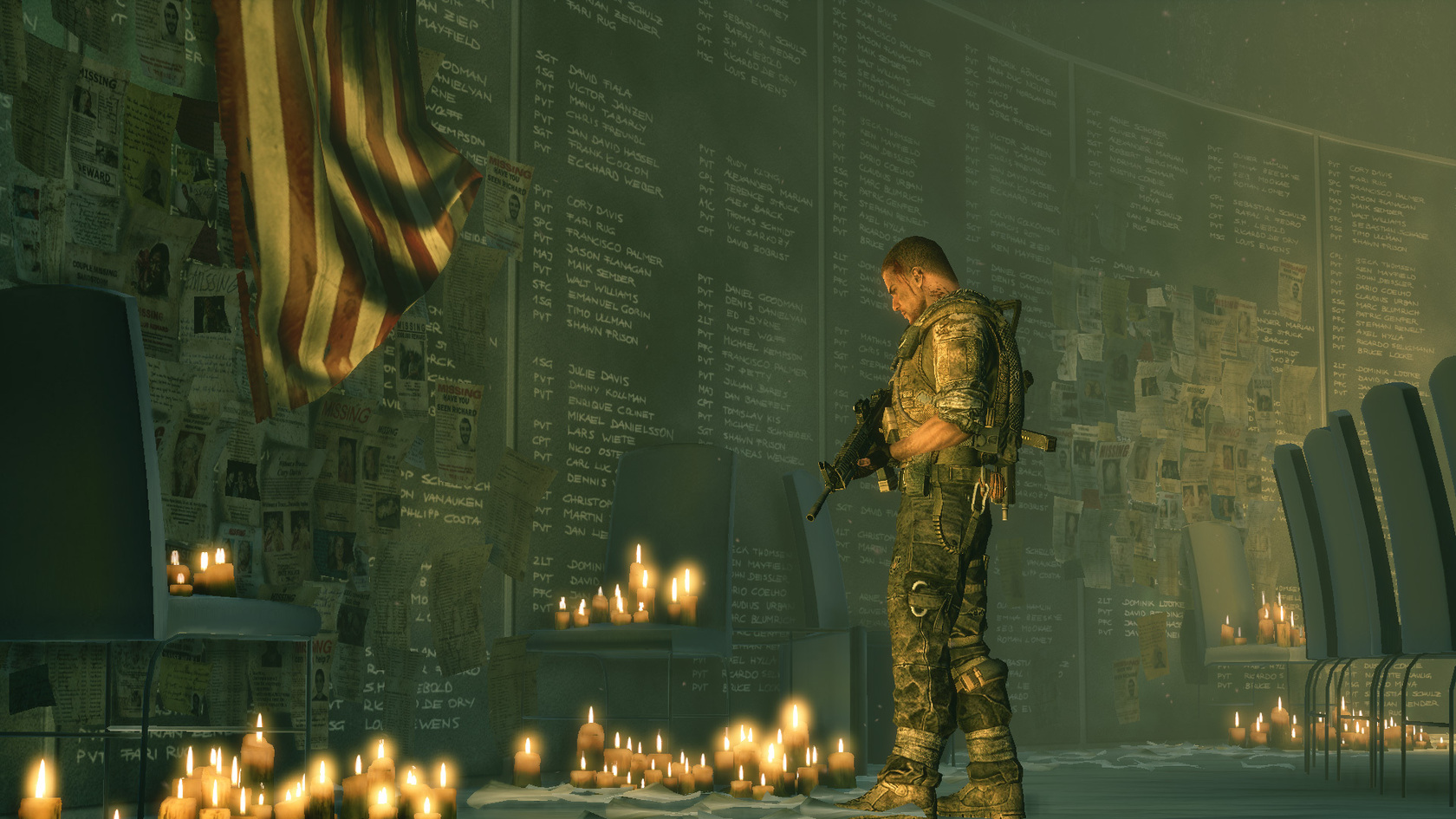
After blowing up the tower, the next event in the game triggered and things were back to normal again. I gunned down a few more waves of Russians and the game ended in the most perfect way: A cutscene where the author self insert and Dudebro shared some physical contact as self insert desperately tried to add a philosophical message about hope to the game, followed by a cut to credits with off-brand Disturbed music.
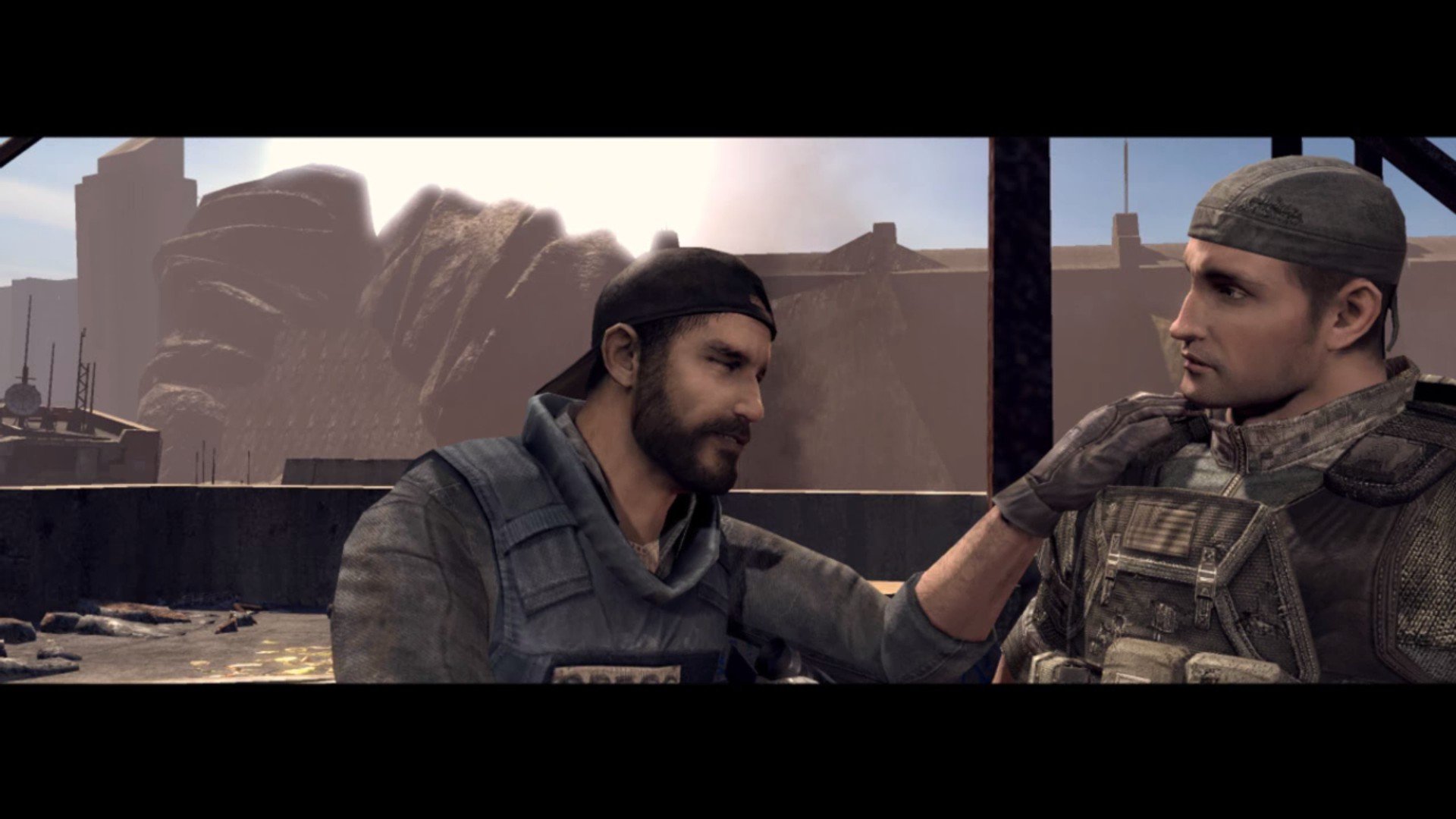
Overall, the game was enjoyable but sparse, with the campaign having an unshakable feeling of existing to prop up a now non-existent multiplayer. It took me about four hours to finish, making it one of the shorter campaigns out there. For $5, it was a worthwhile little ride through shooters of a bygone era. If you have no nostalgia or curiosity about old shooters, there’s nothing in this game that hasn’t been done better since.


It released close to Endwar which was an RTS with a similar plot premise.